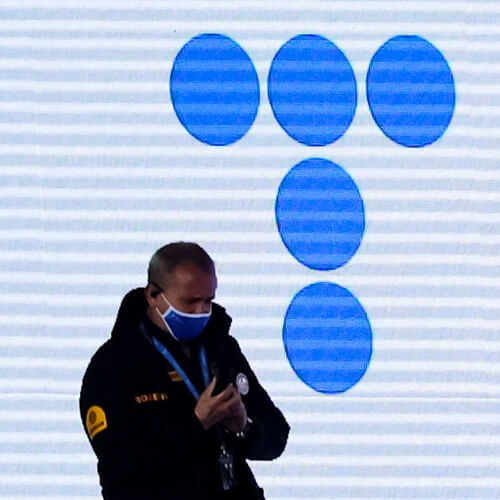Also in today's EMEA regional roundup: European telcos bang on about Big Tech, again; CityFibre likes UK government's Growth Plan; Ericsson clarifies Russia business.

Also in today's EMEA regional roundup: European telcos bang on about Big Tech, again; CityFibre likes UK government's Growth Plan; Ericsson clarifies Russia business.
Telefónica is pooling its resources with those of chipmaker Qualcomm to build their presence in the nascent "XR" market– with XR being the umbrella term, apparently, for all the other realities doing the rounds such as virtual reality and augmented reality. Ultimately, the companies hope that this collaboration will help grab them a piece of the action in the much heralded (though to date much scoffed at) metaverse. Telefónica is providing its network infrastructure while Qualcomm brings its Snapdragon Spaces XR developer platform to the party. Figure 1:
 (Source: Reuters/Alamy Stock Photo)
(Source: Reuters/Alamy Stock Photo)Sounds familiar… 16 European telcos, Deutsche Telekom, Orange and Telefónica among them, have once again issued a joint statement calling on Big Tech to contribute more to the cost of maintaining the networks that carry their wares across Europe and beyond, as well as expressing support for recent announcements by the European Commission that appear to support their cause. "Costs of planning and construction works are increasing. Prices for fibre optic cables, for example, have almost doubled in the first semester 2022. Similarly, the hikes in energy prices and in the prices of other inputs are also hitting the connectivity sector," say the CEOs in their statement (which was issued through ETNO, the European Telecommunications Network Operators' Association), adding that they believe "the largest traffic generators should make a fair contribution to the sizeable costs they currently impose on European networks." (See EU govts coordinate on Big Tech bashing – report, Europe's telcos flout net neutrality in push to make Big Tech pay and EU politicos spar over what big tech pays for infrastructure use.)
The UK government's madcap Growth Plan, which was announced on Friday and included a promise to "give telecoms operators easier access to telegraph poles on private land, supporting the delivery of gigabit capable broadband," has understandably gone down well with UK altnet CityFibre. Commenting on the proposals contained in the so-called "mini-Budget," CityFibre CEO Greg Mesch said: "We are delighted the government has focused on rollout by announcing measures in the Growth Plan that will decrease the time, cost and disruption of delivering gigabit connectivity to homes and businesses across the country."
Ericsson has responded to reports in the Swedish media that it was still exporting telecoms equipment to Russia despite signing up to the sanctions imposed following Vladimir Putin's invasion of Ukraine by stating that it is only supplying software and technical support to Russian clients, not hardware. As Reuters reports, Ericsson maintained it was only providing software and technical assistance for those products that it shipped "prior to the invasion making it possible to withdraw while fulfilling contractual obligations." (See Ericsson halts business in Russia and Ericsson, Nokia to complete Russian exit this year.)
Sky, the UK-based purveyor of pay-TV and more, has signed a sponsorship deal with gaming team Guild Esport. As part of the deal, Sky will be Guild's official HQ, Wi-Fi, broadband and mobile network partner for the next three years and the Guild Esports performance center in London's Shoreditch district will be named the Sky Guild Gaming Centre.
Nordic operator Tele2 has won a contract to supply Stena Fastigheter, a Swedish real estate company, with various digital services, some of them IoT-related. The plan is that the new agreement will enable automation and increased security in Stena Fastigheter's administrative network.
Belgium's Skyline Communications, which sells network monitoring software, has opened a new engineering hub in Sarajevo, the capital city of Bosnia and Herzegovina. Skyline employees around 400 people across the world.
— Paul Rainford, Assistant Editor, Europe, Light Reading
Read more about:
EuropeAbout the Author(s)
You May Also Like




.jpeg?width=300&auto=webp&quality=80&disable=upscale)






